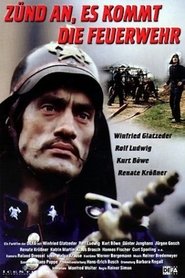detail profile fritz marquardt
Peran Yang Di Mainkan Fritz Marquardt
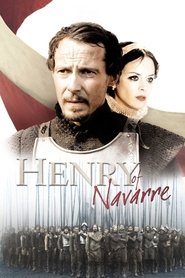 A wideranging energetic period piece tracing...
A wideranging energetic period piece tracing...Henri 4 2010
A wide-ranging, energetic period piece tracing the rise of the Protestant Henry of Navarre as he goes from battlefield warrior to France's beloved King Henri IV. Director Jo Baier's epic is a classically entertaining adventure, albeit one with more than a little bloodshed and frequent bawdy sexual interludes. In late 16th-century France, Catholics and Protestant Huguenots were at war. Seemingly seeking peace, the French dowager queen, Catherine de Medici summons Henry to her court to have him marry her daughter, uniting the two warring factions. However, the Catholics slaughter the Protestant wedding guests in what became known as the St. Bartholomew's Day massacre and Henry-now married-must use all his guile to both stay alive and maneuver for the throne. [Written by Palm Springs International Film Festival]
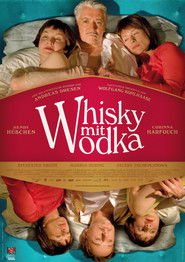 A renowned actor named Otto is...
A renowned actor named Otto is...Whiskey with Vodka 2009
A renowned actor named Otto is the epitome of the problematic but beloved ladies man. Even when drunk he still knows more about filmmaking than does the amateur who is directing him in his latest movie. But what should the unreliable star do when a local actor joins the crew as his understudy? Comic situations arise not only because of the well-known environment, but also from an inclination to authentically capture the various relationships.
 Pictures from the late eighties in...
Pictures from the late eighties in...Material 2009
"Pictures from the late eighties in the GDR on up to the immediate present in the year 2008 in Germany. What has been left over besieges my mind. All these pictures keep reassembling themselves to make up something which they were originally not made for. They are still in motion. They are becoming history." (Thomas Heise)
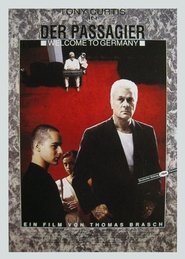 An American filmmaker travels to modern...
An American filmmaker travels to modern...The Passenger – Welcome to Germany 1988
An American filmmaker travels to modern day Berlin to make a film based on a real-life incident from 1942 in which 13 Jewish prisoners from a concentration camp were promised freedom if they appeared in a German propaganda film. Unfortunately, the Germans lied. The psychological process undergone by the modern filmmaker while shooting the story provides the basis of this arty and challenging film.
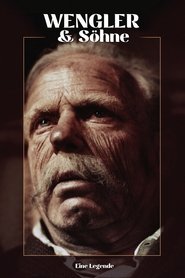 A story spanning three generations from 1871...
A story spanning three generations from 1871...Wengler & Sons 1987
A story spanning three generations, from 1871 to 1945. When Gustav Wengler, a farmer’s son, returns from the Franco-German war in 1871, he goes to work for a precision mechanics and optical company, where he soon becomes a master craftsman. Wengler loyally promises the owner on his deathbed that his sons and grandsons will also stand by the company.
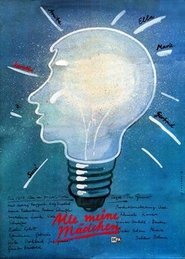 Ralf Paeschke is a film student...
Ralf Paeschke is a film student...All My Girls 1980
Ralf Paeschke is a film student who has to make a documentary film about a group of women working in a lamp factory. There is brazen Susie, mischievous Kerstin, lonely Anita, single Ella, withdrawn Gertrud and the imposing forewoman. When Kerstin is suspected of stealing, tension among the women mounts. Ralf demands that things be clarified, and his film plays an unexpected role in the matter.
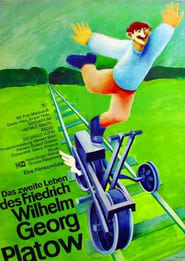 Friedrich Wilhelm Georg Platow worked for...
Friedrich Wilhelm Georg Platow worked for...Das zweite Leben des Friedrich Wilhelm Georg Platow 1973
Friedrich Wilhelm Georg Platow worked for the railways his entire working life. He took up service at the small station of Luege 34 years ago. Now, the line is to be electrified and Platow, who cannot cope with the new technology, has to work on a secondary local line. Georg, his son, a railway worker as well, is to attend a training course, but Georg refuses to go. Then his father comes to a surprising and highly unusual decision. He pretends to be Georg Platow, making himself twenty years younger than he really is and registers for the course.
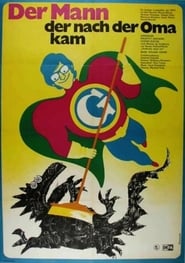 Gnter and Gudrun Piesold are very...
Gnter and Gudrun Piesold are very...Der Mann, der nach der Oma kam 1972
Günter and Gudrun Piesold are very busy with their careers as a TV comedian and an actress, so Grandma takes care of household chores and childcare. But when Grandma remarries, the Piesolds are faced with chaos at home and a burning question: Who will take care of the household?
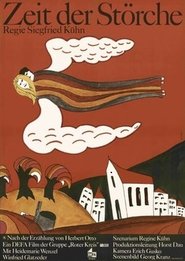 Susanne and Christian get to know...
Susanne and Christian get to know...Zeit der Störche 1971
Susanne and Christian get to know each other during a wonderful week in summer - and fall in love. This, however, leads to conflicts: up to now, Susanne has been living with Wolfgang, a biologist. This shared life was harmonious and based on mutual trust. Wolfgang is not only resolute and in full command of social situations; he has also always been the stabilizing force in the relationship. This is precisely why Susanne now feels drawn to the unsettled, unsteady and frivolous Christian, the complete opposite of the calm, well-balanced Wolfgang. And Christian, working as a shift boss on a natural gas derrick, has become more aware of his personal and social responsibilities as a result of loving Susanne.
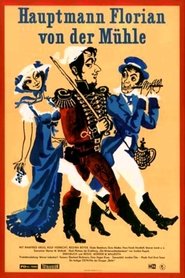 This story of the miller Florian...
This story of the miller Florian...Hauptmann Florian von der Mühle 1968
This story of the miller Florian, who gave all his money to the war against Napoleon, is loosely based on a true story. After the war, Florian's reimbursement is challenged, and he must also pay taxes on his destroyed mill. He resists the tax collectors and takes off to Vienna, where he intends to defend his rights. On the way, he rescues the Duchess of Guastalla from assault. She also wants to go to Vienna, as His Majesty Franz II is trying to contest an heir in her favor. With cunning, luck, and dagger, Florian fights his way through a slew of nobility and their secret police.
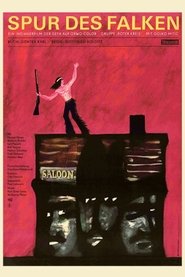 In the latter half of the 19...
In the latter half of the 19...Trail of the Falcon 1968
In the latter half of the 19th century, gold is discovered in the Black Hills, sacred land of the Lakota people. Gold diggers, profiteers and adventurers flock to the region. Among them is the hard-hearted land speculator Bludgeon, who tries to expel the Lakota using brutal methods. Lakota warriors retaliate, and soon the gold diggers' town becomes a battlefield.

 A village has to be destroyed...
A village has to be destroyed...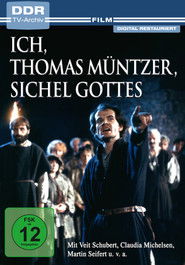
 Alfons lives with his grandparents on...
Alfons lives with his grandparents on...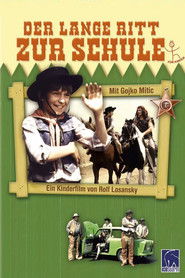 A young boy fantasizes his way...
A young boy fantasizes his way...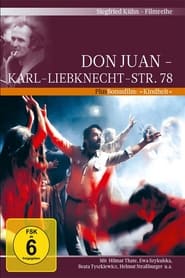 In a backwater town opera director...
In a backwater town opera director...